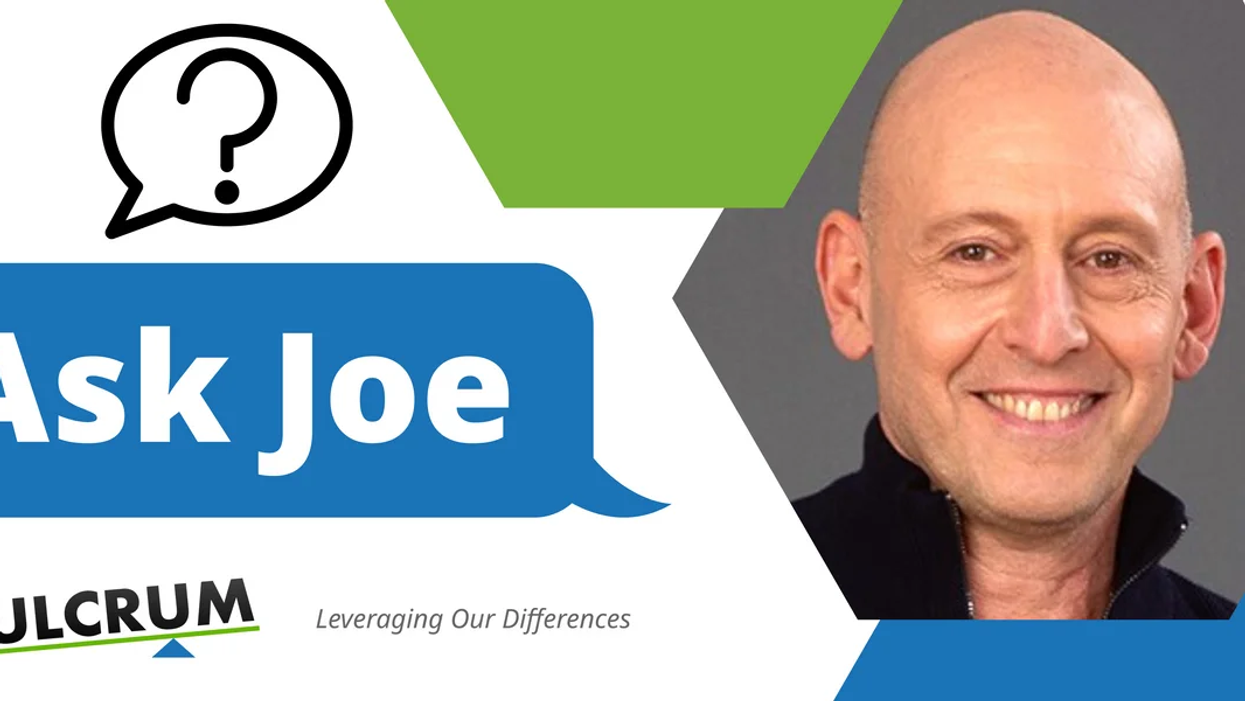Dear Joe,
I’ve been doing bridge-building and depolarization for a long time. I think I’m pretty experienced and knowledgeable about what works and what doesn’t work. You talk a lot about hope and say that we need to appeal to the heart.
While that all sounds good, when I look at the level of animosity and how entrenched people are in what they believe, do you really think that what you suggest would work? With so much advancing with AI (artificial intelligence) and how easy it is to manipulate information, is it really possible at this point to make a difference?
I’d like to believe that there is hope and a way out of this, but I don’t think it will come with being civil and appealing to the heart.
Realistic
Hello Realistic,
I appreciate your honesty, and you make a strong point. I have this discussion with many people, and my response includes me asking, “Is the current fighting, animosity, cynicism and extreme reliance on technology working? At this point, what other choice do we have than appealing to the hearts of those willing to do the work to shift how we are currently treating one another?”
I have seen and experienced with myself and others around the world with whom I’ve worked that where people or opposing groups might have thought there was no way out of dilemmas, new solutions surprisingly emerge that are inclusive, innovative, and sustainable. When we do the challenging work of first regulating our nervous systems so we are not in a reactive state, truly getting into our hearts and meeting people where they are and then giving others a chance to do the same, then unexpected things happen.
I would also offer that just knowing something doesn’t mean that we are actually implementing it. I have heard from others who have read my new book “ Fierce Civility ” or who know my work say to me, “I already know what you are suggesting we do. I don’t see anything new.” And yet I see these same people who say they already know how to approach people with dignity and respect talk about and treat “opposing” groups with cynicism, bitterness, indifference, othering, and self-righteousness – not what I would call qualities of the heart.
Knowing about something doesn’t equate to learning it. We can read a book about flying a plane, but I certainly wouldn't want to get in a plane that is being piloted with no skills behind it! Unfortunately, our data-driven world system is filled with an enormous number of information gatherers who haven’t learned very much. We all know people who should know better—meaning, they’ve gone to all the right workshops, listened to the smartest podcasts, read the bestselling books, earned impressive degrees, and analyzed the current big data; yet, despite their best intentions, they still manage to contribute – either actively or passively – to the polarization and breakdown of civil discourse.
Even with the best of intentions, we may have forgotten that accumulating information (no matter how much) and sharing opinions without making the effort to embody new skills changes very little. And that is what I am advocating for: in a world that is increasingly hostile, bitter and isolated, we need to get beyond our current ideas of what civility is and actually upgrade our capacity to communicate and engage with those who are different. It takes conscious effort to learn new skills and strategies that get us beyond a simple conceptualization of humanity, or settling for “agreeing to disagree.”
The Fierce Civility Approach is designed to take our ideas and aspirations and put them into tangible action. Skills-based learning, an intrinsic part of this approach, is very different from left-brain learning, like memorizing the laws of mathematics or physics. For a data-reliant culture that is programmed to get information quickly, it’s a challenge to slow down, gather information (learn it), then contemplate the data (understand it), and finally begin the longer process of experiencing it in the body, over and over, until it subtly transforms our viewpoints and behaviors.
We’ve done enough research to solve all of our world problems. We have enough proof on a daily basis in newspapers, the media and on the streets that more needs to be done to address the suffering of so many. Yet, for some reason, the facts and evidence are not creating the results we are working so hard to make possible.
In fact, I would say that because of where we are going with technology and AI, because it might be harder for us to distinguish between what is real and what is fake on our devices, because of the growing number of people who are suffering from loneliness and isolation, because of the ways in which the media, social media and the political system are relentlessly wearing us down and stressing us out, we need a stronger commitment to having daily practices of getting out of our heads and into our bodies and into our hearts. By doing so, we come back to our senses and approach challenges with common sense, courage and compassion.
We must make efforts to cultivate our own resilience, as well as truly connect with others from the heart and deepen and strengthen the relationships that empower and nurture us.
This is where I believe our hope resides, Realistic. I may not necessarily have optimism for what is unfolding, but I do have faith in the human spirit and what is possible when we align our thoughts and words with what we actually do.
From my heart,
Joe
Learn more about Joe Weston and his work here. Make sure to c heck out Joe’s bestselling book Fierce Civility: Transforming our Global Culture from Polarization to Lasting Peace, published March 2023.
Have a question for Joe? Send an email to AskJoe@fulcrum.us.




















Marco Rubio is the only adult left in the room